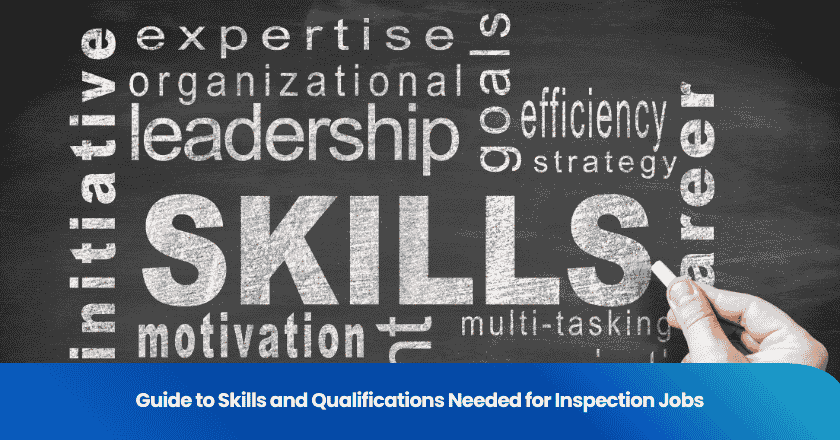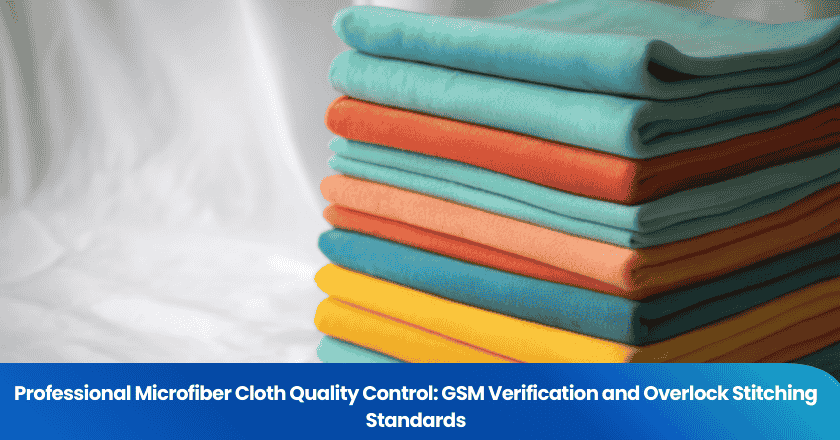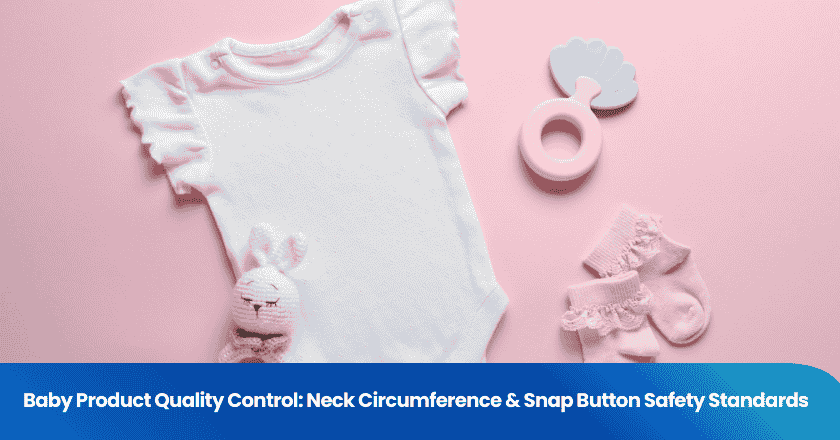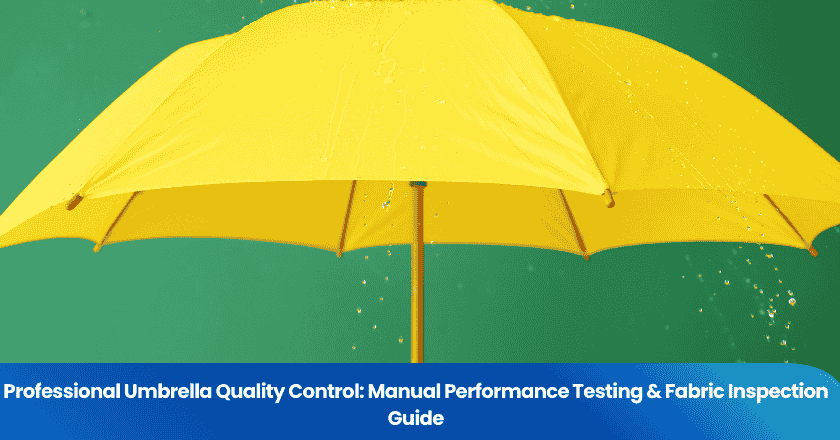
You need both technical expertise and essential skills to succeed in inspection jobs. Employers look for quality knowledge, strong attention to detail, and the ability to meet specific requirements for each role. Quality inspectors, for example, must understand industry standards and quality control processes. Building inspectors focus on safety and quality in construction. You should develop your communication and quality assessment skills to stand out. Meeting education and certification requirements helps you advance your career and meet industry quality expectations.
Key Takeaways
- Inspection jobs require a mix of technical skills, attention to detail, and strong communication abilities to ensure quality and safety.
- Education and certifications are crucial for advancing in inspection careers; consider pursuing relevant courses to enhance your qualifications.
- Hands-on experience through internships or apprenticeships is essential for mastering inspection techniques and understanding industry standards.
- Networking with industry professionals and joining associations can open doors to job opportunities and provide valuable resources for career growth.
- Specializing in a specific area of inspection can lead to advanced roles and higher earning potential, making you an expert in your field.
Inspection Jobs Overview
What Are Inspection Jobs
Inspection jobs focus on evaluating products, buildings, or processes to ensure they meet established standards. You play a key role in maintaining quality and safety across industries. The job description for these roles often includes reviewing materials, equipment, or facilities for compliance with regulations. You may work in manufacturing, construction, transportation, or public health. Many industries rely on inspection jobs to uphold quality control and protect public interests.
You find opportunities in various sectors:
- Real estate agents and brokers
- Property managers
- Homeowners’ associations
- Government agencies
- Investors and financial institutions
The demand for inspection jobs continues to grow in the United States and globally. You see openings for elevator inspectors in states like South Carolina, Texas, Colorado, and Florida. Agencies and consulting firms seek professionals to ensure public safety and quality standards.
Typical Duties
Your daily responsibilities depend on the specific job description and industry. You might conduct routine inspections using visual checks, measurements, and specialized equipment. You maintain accurate records of inspection results and ensure compliance with company policies and industry standards. You identify defects or inconsistencies in production and implement corrective actions to maintain quality.
Common duties include:
- Conducting regular inspections of food establishments, schools, and public facilities for health code compliance
- Investigating complaints and taking appropriate action
- Collecting samples for laboratory testing
- Educating business owners and the public on health and safety regulations
- Reviewing plans for new construction or renovations
- Preparing detailed reports and recommending corrective actions
- Issuing citations or fines for non-compliance
- Following up to ensure corrective actions are completed
- Collaborating with other professionals and agencies
- Staying updated on current regulations and best practices
Quality inspectors verify that work meets specified standards and codes. Building inspectors ensure compliance with safety regulations and structural integrity. Safety inspectors focus on identifying hazards and enforcing safety regulations. You help maintain high levels of quality and safety in every aspect of your work.
Types of Inspection Jobs
Quality Inspector
You play a vital role as a quality inspector by ensuring products meet strict quality standards before reaching customers. Your main responsibilities include conducting detailed examinations and tests to spot defects or non-conformities in products. You record inspection results, maintain thorough reports, and work closely with production teams to address quality issues. You use specialized testing equipment to perform accurate assessments and conduct final checks before approving products for distribution. In your daily work, you focus on quality control and collaborate with others to implement corrective actions. You often work in manufacturing plants, warehouses, or laboratories, where attention to detail and a strong understanding of quality are essential.
Tip: As a quality inspector, you should understand the different inspection stages.
Here is a quick overview:
| Inspection Type | Definition |
|---|---|
| Pre-Production Inspection | Assesses quality and quantity of materials before production starts. |
| Initial Production Check (IPC) | Confirms adherence to specifications before mass manufacturing begins. |
| During Production Inspection (DUPRO) | Evaluates consistency and identifies defects during production. |
| Final Product Inspection (PSI) | Approves or rejects shipments before they leave the factory. |
| Container Loading Inspection | Checks packing and securing of goods in shipping containers. |
| In-Line Inspection | Spot checks during production to detect issues immediately. |
| Production Monitoring | Continuous supervision by a quality control expert throughout the production process. |
Safety Inspector
You work as a safety inspector by identifying hazards and enforcing safety regulations in workplaces. Your description involves conducting risk assessments, writing inspection reports, and ensuring compliance with industry laws. You use your knowledge of quality assurance, regulatory compliance, and inspection equipment to maintain safe environments. Important skills for this role include data analysis, maintenance and repair knowledge, and problem-solving. You also need strong communication skills and the ability to manage documentation. Safety inspectors often work in factories, construction sites, or public facilities, where you help reduce risks and promote a culture of safety.
Skills for Quality Inspection
Technical Skills
You need strong technical skills to succeed as a quality inspector. These skills allow you to perform accurate measurements, operate specialized equipment, and interpret data. In your daily work, you use tools like calipers and micrometers to verify product dimensions. Mastery of these instruments ensures that you catch even the smallest deviations from specifications. You also use magnetic particle methods to detect flaws in materials, which helps maintain high standards in quality control.
You often rely on data analysis software, such as Minitab or SPSS, to analyze quality data and generate reports. This technical knowledge supports your ability to identify trends and recommend improvements. You apply Lean Six Sigma methodologies to drive continuous improvement and eliminate inefficiencies. Your role may also require you to lead quality audits, ensuring compliance with industry standards and regulations.
Proficiency in specialized tools and technology increases your efficiency as a quality inspector. Automated tools reduce human error and help you complete inspections more thoroughly.
Here are some technical skills frequently listed in job descriptions for quality inspector roles:
- Create and interpret control charts to monitor process variations.
- Use data analysis software for quality reporting.
- Apply Lean Six Sigma principles to improve processes.
- Lead internal and external quality audits.
- Measure product dimensions with calipers and micrometers.
- Detect material flaws using magnetic particle testing.
- Provide guidance on ISO standards and quality system requirements.
Your technical knowledge forms the foundation of your effectiveness in quality inspection jobs. You must stay updated on new technologies and testing methods to maintain your edge in the field.
Attention to Detail
Attention to detail sets you apart as a quality inspector. You must notice small defects or inconsistencies that could affect product quality or safety. Employers assess this skill during the hiring process using several methods. They may use structured assessments, interviews, and situational questions to evaluate your observational abilities. They also review your portfolio and resume for errors or inconsistencies and seek feedback from previous employers.
You must demonstrate your attention to detail in every aspect of your work. You review inspection reports, check documentation, and verify that products meet all requirements. This skill ensures that you catch issues early and maintain high standards in quality control.
Tip: Employers often use skill tests and situational questions to measure your attention to detail. Prepare by practicing sample scenarios and reviewing your past work for accuracy.
Communication
Communication plays a critical role in your success as a quality inspector. You must clearly explain your findings, document inspection results, and collaborate with other team members. Effective communication helps prevent errors, improves efficiency, and ensures safety in the workplace. You need to articulate your ideas and observations so others can understand and act on them.
Employers value candidates who work well in teams and express themselves clearly. In inspection jobs, you often interact with production staff, supervisors, and regulatory agencies. Your ability to communicate technical information in simple terms helps everyone stay informed and aligned.
- Effective communication fosters collaboration and enhances safety awareness.
- It ensures compliance with safety protocols by making it easier to identify hazards and evaluate risks.
- Open communication creates a culture of accountability and shared responsibility.
Your description as a quality inspector includes preparing detailed reports, discussing findings with colleagues, and sometimes training others on quality standards. Strong communication skills help you build trust and credibility in your role.
Note: Practicing active listening and clear documentation will improve your communication skills and make you a more effective quality inspector.
Qualifications for Inspection Jobs
Education
You need the right educational background to start your career in inspection jobs. The minimum education level depends on the sector and the specific job description. For many entry-level roles, such as quality inspector or building inspector, employers require at least a high school diploma or GED. Some specialized positions, especially those involving building inspections or code compliance, may ask for additional coursework or a degree in construction management, engineering, or a related field.
Here is a quick overview of minimum education levels for different inspection roles:
If you want to advance as a certified quality inspector or building inspector, consider pursuing college-level courses in mathematics, blueprint reading, or construction technology. These subjects help you understand the technical aspects of quality, code compliance, and building inspections.
Tip: Some community colleges offer associate degrees or certificates that focus on quality inspection, building inspections, and code compliance. These programs can give you a competitive edge.
Experience
Experience is a key factor in your success as a quality inspector or building inspector. Employers value hands-on experience because it shows you can apply your skills and knowledge in real-world situations. For entry-level inspection jobs, you may start as an assistant or trainee, learning the basics of quality, code compliance, and building inspections.
For mid-level positions, employers typically require a minimum of two to three years of experience. This experience helps you master the job description, understand complex inspection procedures, and handle challenging situations.
Career Paths in Inspection
Entry-Level Roles
You can start your inspection career in several entry-level positions. As a quality inspector, you check products and materials for defects and ensure they meet quality standards. Many employers require a high school diploma or equivalent for these roles. Some positions prefer technical education, such as an associate degree in mechanical engineering technology or industrial maintenance. You need strong communication skills, mathematical ability, and attention to detail. Hands-on experience in related fields helps you stand out.
| Role | Typical Requirements |
|---|---|
| Equipment Inspector | High school diploma; technical education preferred; communication and math skills. |
| Line Inspector | High school diploma; certifications in quality inspection; experience with compliance. |
You can gain practical skills through vocational schools, on-the-job training, apprenticeships, or online courses. These paths help you build a solid foundation as a quality inspector.
Advancement
As you gain experience, you can move into more advanced roles. You might become a senior quality inspector or specialize in quality control. Many professionals advance by taking on supervisory duties or leading inspection teams. Some choose to focus on technical areas, such as nondestructive testing or laboratory analysis. You can also pursue roles that involve designing and developing new materials or investigating product failures.
Tip: Advancing as a quality inspector often requires additional certifications and a strong record of quality work.
FAQ
What skills do you need for inspection jobs?
You need technical skills, attention to detail, and strong communication. You must understand regulations and follow procedures. You also need to work well with others and solve problems quickly.
Do you need a degree to become an inspector?
Most entry-level inspection jobs require a high school diploma or GED. Some specialized roles may ask for college courses or a degree in engineering, construction, or a related field.
How important is certification for inspectors?
Certification helps you stand out and shows you meet industry standards. Many employers prefer or require certifications, especially for building or safety inspector roles.
What does quality control mean in inspection jobs?
Quality control means checking products, processes, or structures to ensure they meet set standards. You use tests and inspections to find defects and maintain safety.
How can you gain experience in inspection careers?
You can start with internships, apprenticeships, or entry-level jobs. Volunteering and on-the-job training also help you build practical skills and learn from experienced inspectors.
Grow your business with TradeAider Service
Click the button below to directly enter the TradeAider Service System. The simple steps from booking and payment to receiving reports are easy to operate.





